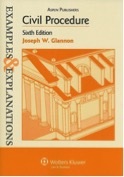Some 1Ls deprioritize LAWR in favor of other core classes, thinking “Hey, it’s fewer credit hours per semester.” These students couldn’t be more wrong, however: your LAWR class may be one of the most important classes you take in law school.
That’s the takeaway from a recent panel discussion hosted by Sarah Ricks, Clinical Professor of Law and Co-Director of the Law School’s Pro Bono Research Project. The panelists—3 recent graduates and 1 current 4L, a JD/MBA candidate—spoke to current students about how their LAWR classwork will translate in the real world, including the job hunt.
Although they are newer lawyers, the panelists collectively had worked in federal and state clerkships, internships, and jobs in mid- and large-sized law firms. Each speaker attributed their individual success to the skills that they acquired in their legal writing courses.
Whether you know exactly what you want to do or are still looking for your passion or your place in the legal community, these basic tenets will hold true:
1. KNOW WHERE & HOW TO FIND ANSWERS
Don’t search aimlessly in Westlaw or Lexis: learn about practice-area and subject-specific treatises. These secondary sources contain the law you need in your practice area and can save you time!
Learn how to research in print. In practice, searching online can drive up your client’s costs, and most clients aren’t willing to pay for expensive research. One panelist admitted that even big firm lawyers often turn to books for answers because, when billing hours, every minute matters.
As a student you have almost limitless access to many legal databases: take the time to see what they offer! Database companies want you to get comfortable with their systems in the hopes that you’ll stick with that service in practice. But don’t just learn each system’s resources; learn what tools they make available that can make you a more efficient researcher.
2. KNOW HOW TO COMMUNICATE YOUR FINDINGS
When you’re given a research assignment by a senior attorney, that person most often will not know the answer and will be relying entirely on you. You must know how to find the correct answer and convey your findings effectively. And unlike in law school, you will not be reminded on a regular basis that you have an assignment due.
Take writing-intensive classes. While you may have many opportunities to learn substantive law in practice, school is the best place to hone your writing skills: ask questions, get feedback, and practice, practice, practice.
Take practicums that allow you to develop your skills. Most of the panelists mentioned that they had practiced and honed LAWR skills in clinics and competitions. Specifically, the ability to craft correct and well-supported arguments and communicate them effectively will distinguish you from an applicant pool. And as one panelist pointed out, “writing is only one aspect of communication.” You need to be able to verbalize persuasively and concisely.
PROOFREAD. This may seem like a no-brainer, but it is easy to skip when you’re under pressure. Make sure all punctuation is in place; make sure all citations are included; make sure you say what you need to say and cut everything else.
One panelist mentioned that when he interviewed for his first internship, he had one bad grade on his record, but strong 1L LAWR writing samples. The interviewing judge told him that, had he had perfect grades and a sub-par writing sample, he would not have gotten the internship.
3. KNOW HOW TO MANAGE YOUR TIME EFFECTIVELY
The panelists reiterated that now is the time to practice managing your time. As students, you have 2-3 months to study an issue and write a concise research memo. In this time, you’ll receive feedback so that you can improve. Heed that advice and, where possible, seek out more.
In practice, you may have as little as 30 minutes to write a memo for a senior attorney or judge. When time is tight, knowing where to look for the answer will give you more time to read and process the information that you’re finding. This is critical.
Straight talk: your workload will probably not decrease from school to practice. Sure, now it seems like you have an overwhelming amount of work, but realistically your workload is only likely to increase. When you’re juggling many tasks, you’ll need to be able to jump from issue to issue seamlessly. Practice managing and budgeting your time now.
Use this time to think about your own approach to research, analysis, and writing. Don’t wait! Visit your professor’s or TA’s office hours today.
Written by CDS.
Edited by GBT.




